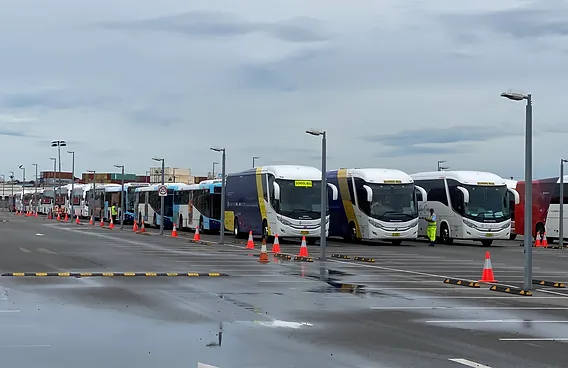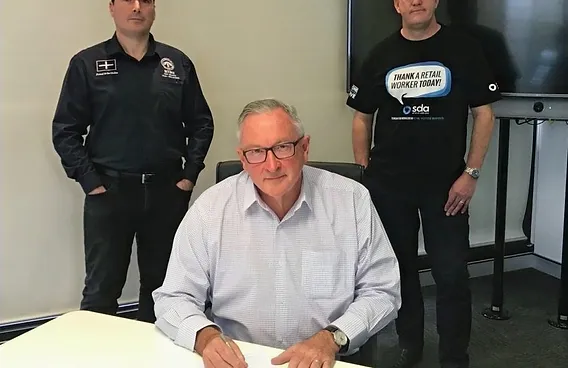COVID-19
When COVID-19 was identified as an ‘atypical viral pneumonia of unknown cause’ by Chinese officials in Wuhan Province in December 2019, we were in the middle of our campaign against the privatisation of rest of the State Transit Authority. At the first COVID meeting between Unions and Transport for NSW (TfNSW), it became clear how big a problem we faced. At that meeting, ports were ordered closed, billions of dollars worth of goods on ships waiting to dock were turned back and NSW looked to be quietly preparing for the worst. All public transport was flagged to go onto a Sunday timetable, and staff were to be stood down without pay. The future looked grim.
Working together with the Maritime Union of Australia, the Transport Workers Union, the Australian Services Union, Professionals Australia and others, the Tram & Bus Division was a driving force behind the scenes. We advocated for the return of a little known provision from the 2012 SARS pandemic agreement between Unions and the NSW Govt; ‘Influenza Leave’. This later became ‘Pandemic Leave’ and was a key part of making sure workers could continue to meet financial obligations while in isolation. We were the first to work with companies and organise for the front Opal readers to be closed as well as having the front passenger seats taped off. Those measures were rolled out within 3 days by all the companies we engage with after approval by TfNSW and were soon followed by all bus companies doing the same. We also unilaterally stopped taking cash fares in Newcastle. We told TfNSW that for safety reasons our members would not continue handing cash and there were no repercussion on members because of how that was handled behind the scenes.
We were also the first to advocate for masks to be made available for drivers and for masks to be mandatory for passengers. For the first 4 months of the pandemic, TfNSW actually argued AGAINST the issuing of masks, saying that people wearing masks would fiddle with them and that made them dangerous. We kept up the fight and as the pandemic worsened, TfNSW finally provided masks to members. During that gap in time, we organised for a team of volunteers from across NSW and the ACT to make masks by hand for our members. These tireless volunteers ended up producing over 1000 masks with materials bought by the union. We also secured a donation of 10,000 disposable masks which were sent to depots for delegates to distribute. Finally the Government took an interest in the welfare of the workers and started providing masks themselves, but we remain grateful and humbled by those people who cared about the safety of our members enough to sew us cloth masks.
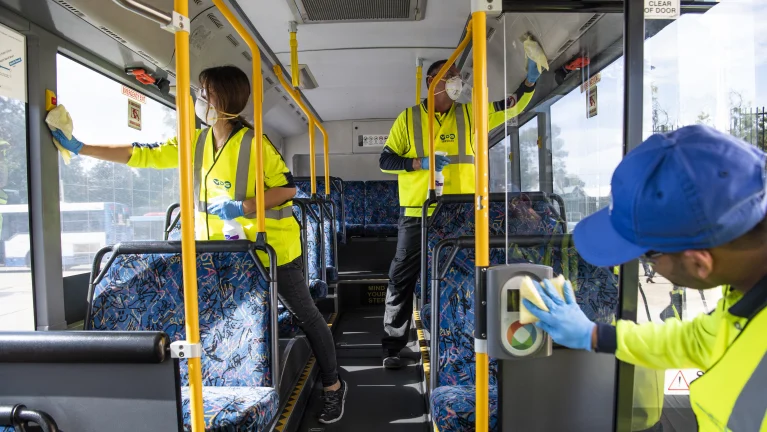
By mid-2020, things had stabilised to a degree and there was a pattern emerging . We ran a public campaign that saw over 600 emails of support from the public. This was a positive boost as things started getting scary; we were all facing something completely unknown and while the Government was easing some restrictions, it didn’t take too much imagination to see how easily it could all fall apart. Christmas of 2020 saw much of the Northern Beaches of Sydney locked down in response to the cluster of cases there. The Tram & Bus Division continued to question the political influence on NSW Health Dept decision making, pointing out how many of the decisions came too late or were not going to achieve what they were supposed to. This is where the NSW Govt got a taste for using the pandemic as a vehicle for political gain.
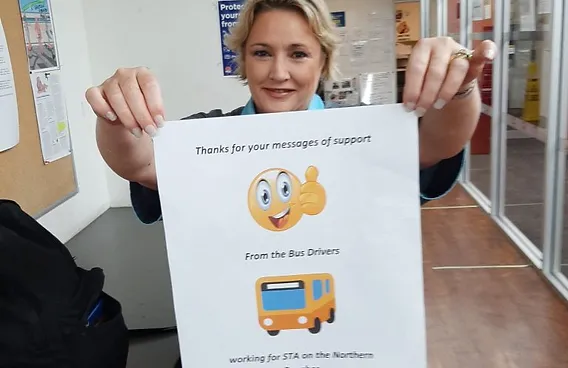
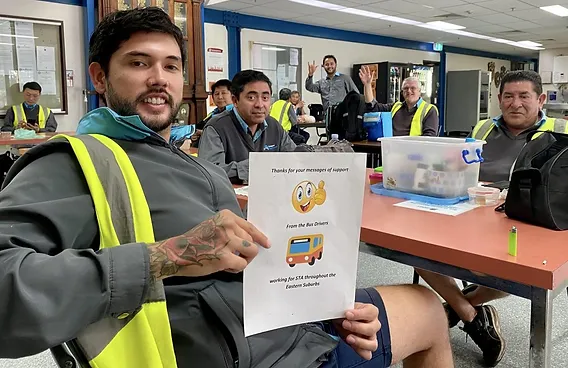
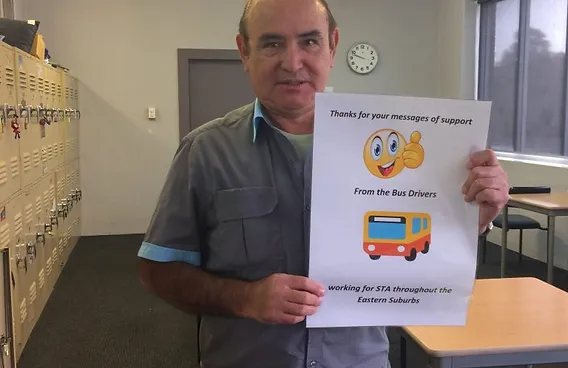
By mid-2021, NSW was getting it’s first taste of what lockdowns meant for daily life since the limited lockdown on the Northern Beaches. Restrictions to the Eastern Suburbs and the Sydney CBD were followed by the entire Greater Sydney Metropolitan Area being restricted from traveling more than 5 km from home. The lockdown has harder felt in Sydney’s West where people suffered uncertainty and disruption where police and in some cases Army Reserve personnel were stationed on street corners. It was a genuinely scary time for millions of Sydney residents. Eventually, restrictions eased and life returned to a more recognisable state, if not normal.
Throughout this whole time, the Tram & Bus division engaged with weekly COVID Takforce meetings with TfNSW. We advocated strongly for the continued payments of contracts to companies. This meant they had money to continue to pay workers, and this is why buses were driving around empty- but they did keep driving. There were changes to timetables and different companies ran different methods of trying to keep the virus from spreading but the one thing that did not change is that workers were paid throughout the pandemic, sometimes at base rate and sometimes at rostered rates but they did get paid. Only in the Transport sector was Pandemic Leave uncapped for so long. This too was a result of tireless lobbying by unions, driven in large part by the Tram & Bus Division.
The single exception to this was when TfNSW brought in a mandatory vaccination policy. This affected members in the Eastern Suburbs as other areas had gone into private hands. The Tram & Bus division the juggled the future of work under the private operator with the spectre of being stood down and sacked by TfNSW. We ran a dispute in the NSW Industrial Relations Commission and negotiated with both TfNSW, STA and Transdev John Holland Buses (TJHB). We convinced the company to not use the TfNSW vaccination policy but to come up with their own as required. We also convinced TfNSW NOT to sack workers that would be transferring across. The mandatory vaccination policy started December 6th 2021 but the dispute was lodged days before hand. The dispute was resolved early February 4th 2022, and TJHB took over April 3rd 2022. Because of the timings, affected members were paid base rate from December 6th 2021 till early February 2022. Leave taken during this time was reaccredited and entitlements accrued. The singular period of non-payment for members across the pandemic was for those people who did not adhere to the mandatory vaccination policy and for the period of February 4th 2022- April 3rd 2022. A remarkable achievement given the fluid nature of decision making and the political interference in that process.
